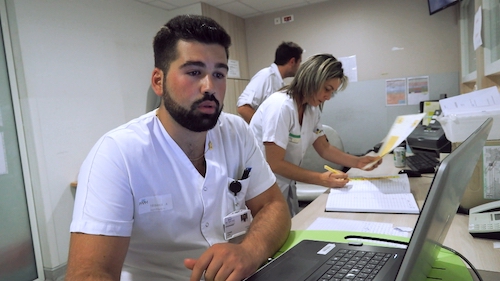
- 60'
- Author : Denis Einaudi
- 11-01-2020
- Master : 2913
-
Share!
DID YOU CALL 911? | TF1 | Reportages
In less than 20 years, attendance in France’s ERs has doubled. But not the staff. The consequence: the personnel are exhausted. Even if they continue to work, nearly half of Emergency services are on strike. An immersion in the ER of Nimes University Hospital. The staff are not on strike, but for how long? Arthur has been a nurse here for two years. This week, in intensive care, he has to cope with two enemies who tried to kill each other and are in the same room and avoid them coming into contact. “These conditions are not acceptable. I’m here to treat people. And nothing else.” His colleague, Othilia, although not on strike either, has joined the protest movement. She works one 12-hour shift after another at a frantic pace. “It’s total mayhem, we never have the time to understand fully what’s happening. I can’t stand by and do nothing.” On average, an emergency nurse asks for a change of post after 4 years. Such is Lisa’s case. She’s leaving after 6 years. This is her last week. She can’t take any more night shifts. However, the admission of a young woman injured in a road accident, shakes even this experienced nurse. “I have a weakness: I’m a mother… I try not to get involved. But when I see the parents come in, it’s really hard.” In the Nimes ER, a quarter of the patients are children. Philippe Fournier is head doctor in the Nimes pediatric ER. Every day he is faced with a constant stream of minor bumps, serious illnesses or poisoning whose nature he must decide urgently. “The only way to avoid making a mistake is to keep a cool head.”.
